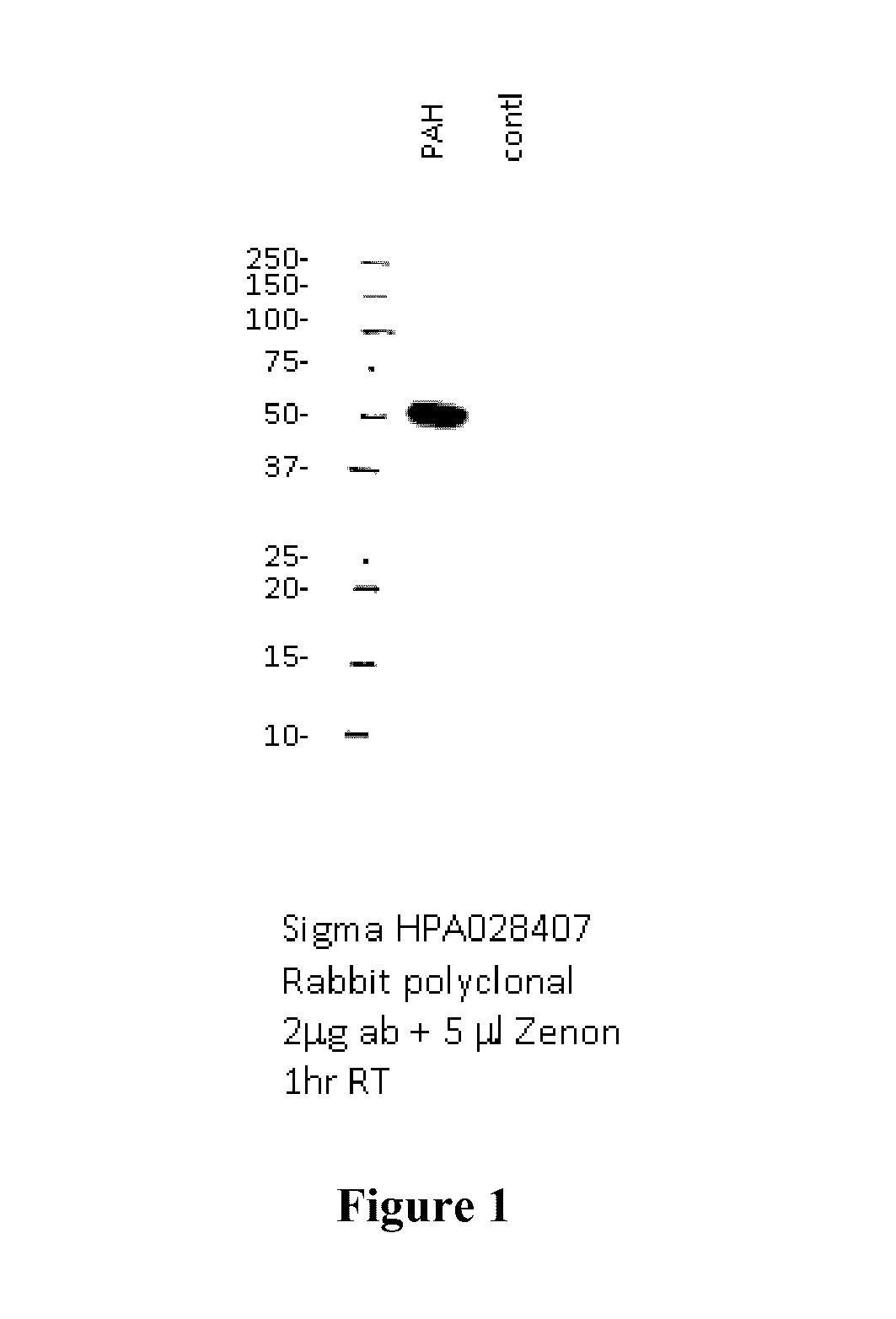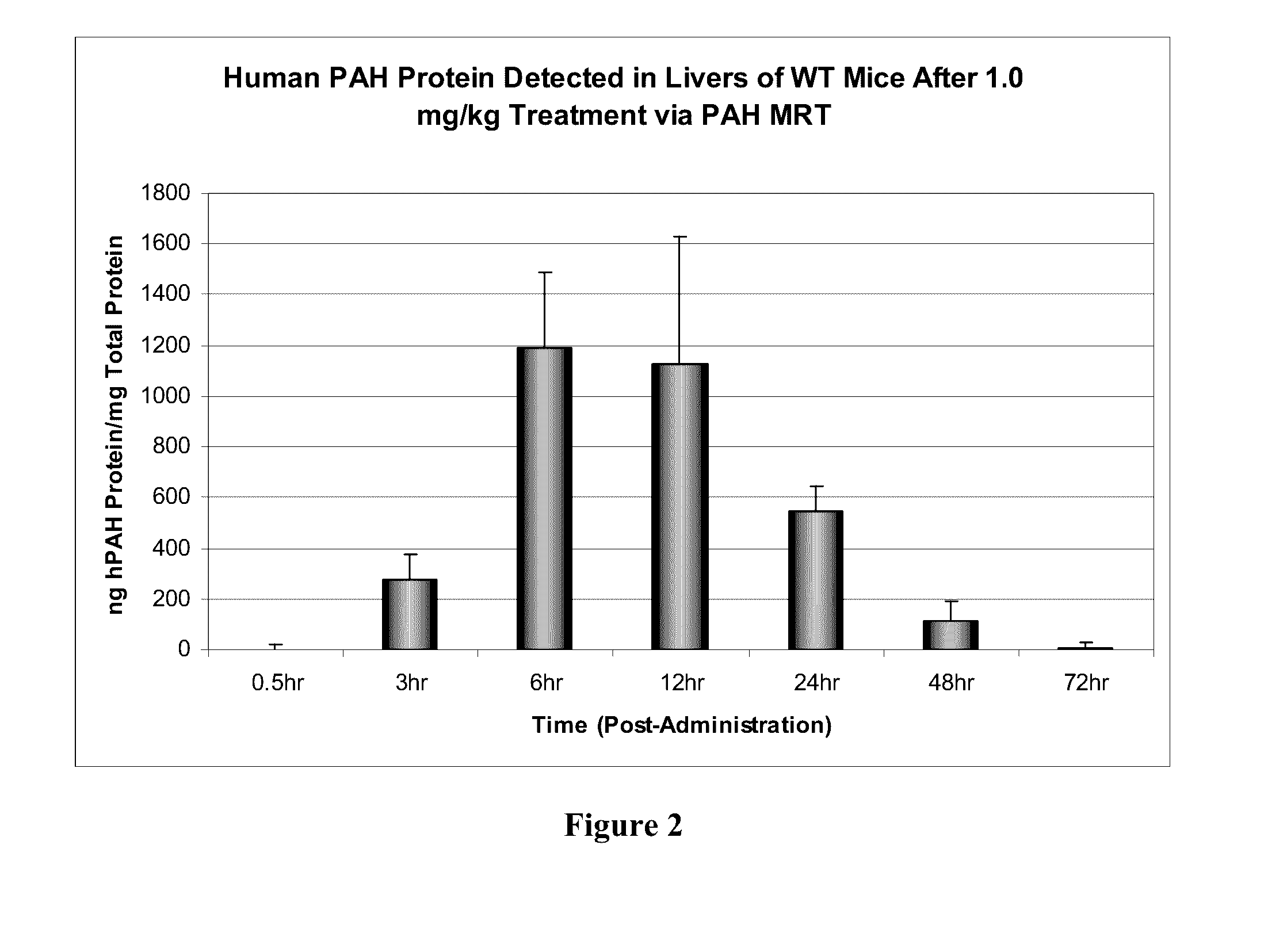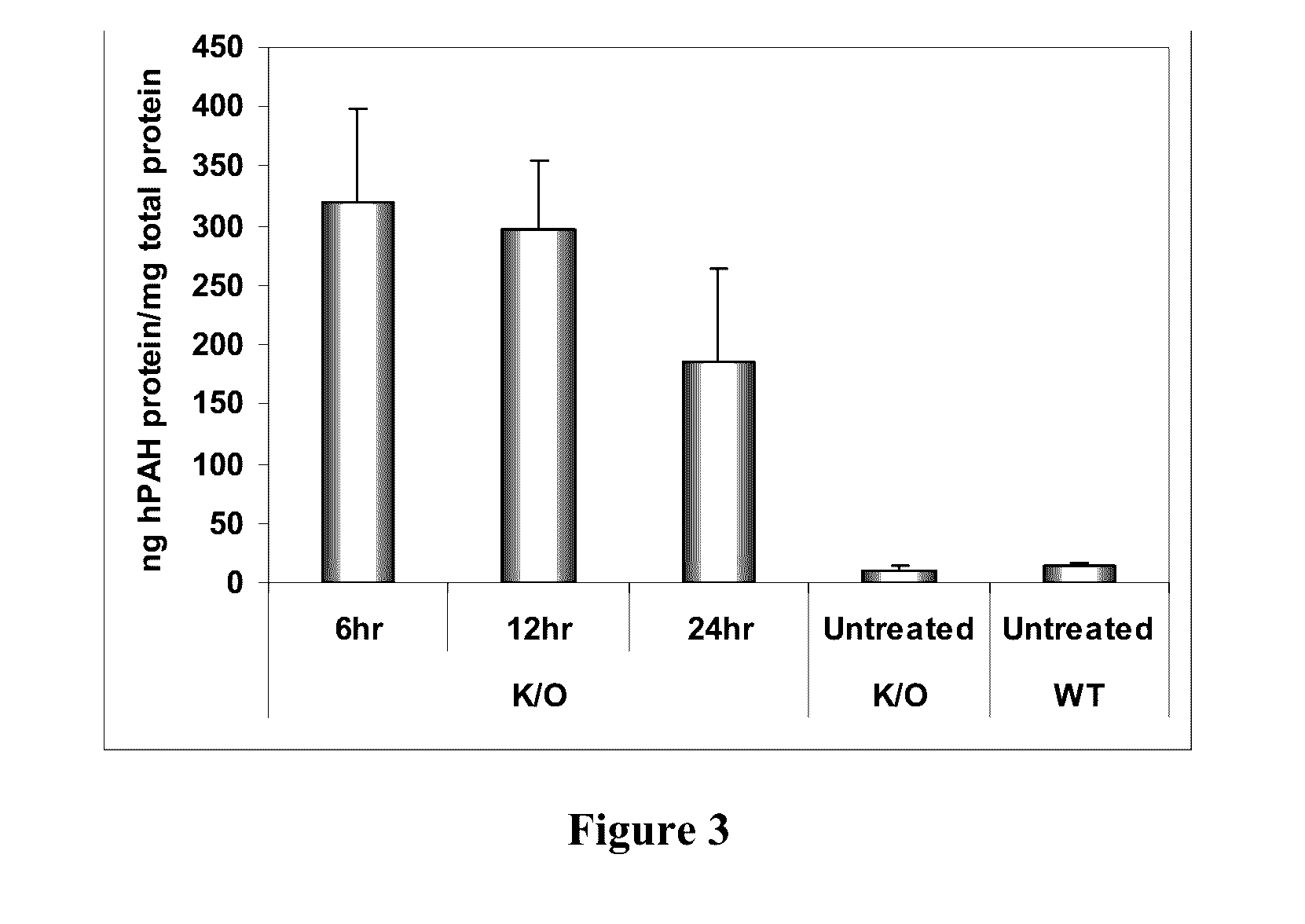MRNA therapy for phenylketonuria
a phenylketonuria and mrna technology, applied in the direction of drug compositions, peptide/protein ingredients, metabolic disorders, etc., can solve the problems of mental retardation, seizures and other serious medical problems, and achieve the effect of effective treatment of phenylketonurea (pku) base, high treatment efficiency and efficient protein production
- Summary
- Abstract
- Description
- Claims
- Application Information
AI Technical Summary
Benefits of technology
Problems solved by technology
Method used
Image
Examples
example 1
Exemplary Liposome Formulations for hPAH mRNA Delivery and Expression
[0187]This example provides exemplary liposome formulations for effective delivery and expression of hPAH mRNA in vivo.
[0188]Lipid Materials
[0189]The formulations described in the following Examples, unless otherwise specified, contain a multi-component lipid mixture of varying ratios employing one or more cationic lipids, helper lipids (e.g., non-cationic lipids and / or cholesterol lipids) and PEGylated lipids designed to encapsulate phenylalanine hydroxylase (PAH) mRNA. Unless otherwise specified, the multi-component lipid mixture used in the following Examples were ethanolic solutions of cKK-E12 (cationic lipid), DOPE (non-cationic lipid), cholesterol and DMG-PEG2K.
[0190]Messenger RNA Material
[0191]Codon-optimized human phenylalanine hydroxylase (PAH) messenger RNA was synthesized by in vitro transcription from a plasmid DNA template encoding the gene, which was followed by the addition of a 5′ cap structure (Cap...
example 2
Administration of hPAH mRNA-Loaded Liposome Nanoparticles
[0204]This example illustrates exemplary methods of administering hPAH mRNA-loaded liposome nanoparticles and methods for analyzing delivered mRNA and subsequently expressed hPAH protein in various target tissues in vivo.
[0205]All studies were performed using male CD-1 mice or PAH knockout mice of approximately 6-8 weeks of age at the beginning of each experiment. Samples were introduced by a single bolus tail-vein injection of an equivalent total dose of 1.0 mg / kg (or otherwise specified) of encapsulated PAH mRNA. Mice were sacrificed and perfused with saline at the designated time points.
[0206]Isolation of Organ Tissues for Analysis
[0207]The liver, spleen, kidney and heart of each mouse was harvested, apportioned into separate parts, and stored in either 10% neutral buffered formalin or snap-frozen and stored at −80° C. for analysis.
[0208]Isolation of Plasma for Analysis
[0209]All animals were euthanized by CO2 asphyxiation a...
example 3
In Vivo Protein Production and Clinical Efficacy
[0214]This example demonstrates that administration of hPAH mRNA results in successful protein production and clinical efficacy in vivo.
[0215]In order to determine if delivered mRNA was successfully translated into protein in vivo, quantification of human PAH protein detected in treated mouse livers was achieved via ELISA-based methods (FIG. 2). FIG. 3 further shows that a clear production of human PAH protein was observed with no cross reactivity with the mouse homolog as confirmed via untreated wild type mouse livers. Between 6 and 12 hours after administration, approximately 300 ng of hPAH protein was detected per mg of total protein in a sample (see FIG. 3).
[0216]To determine clinical efficacy, we evaluate the effect of mRNA delivery in serum phenylalanine levels in PAH knockout mice, a PKU disease model. Phenylalanine levels in untreated PAH knockout mice were extremely elevated as compared to wild type mice (˜1450 uM vs ˜50 uM). ...
PUM
| Property | Measurement | Unit |
|---|---|---|
| size | aaaaa | aaaaa |
| size | aaaaa | aaaaa |
| size | aaaaa | aaaaa |
Abstract
Description
Claims
Application Information
 Login to View More
Login to View More - R&D
- Intellectual Property
- Life Sciences
- Materials
- Tech Scout
- Unparalleled Data Quality
- Higher Quality Content
- 60% Fewer Hallucinations
Browse by: Latest US Patents, China's latest patents, Technical Efficacy Thesaurus, Application Domain, Technology Topic, Popular Technical Reports.
© 2025 PatSnap. All rights reserved.Legal|Privacy policy|Modern Slavery Act Transparency Statement|Sitemap|About US| Contact US: help@patsnap.com



